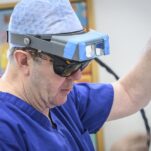Accurate Diagnosis
Understanding the history of your facial pain is essential. Your consultant will want to know about the timing, duration, location, and severity of your pain. They will discuss any factors that relieve or aggravate it, as well as any related symptoms, whether in the facial area or elsewhere.
Your medical and family history can provide useful clues. For example, jaw joint disorders can sometimes be hereditary, and life events or lifestyle choices may contribute to your condition.
A physical examination is a key part of the diagnostic process. Your consultant will assess the movement of your head, neck, and jaw muscles, check for any colour changes, tenderness, unwanted growths, or swelling in the glands.
In some cases, lab analysis of tissue or blood samples may be needed. We also use advanced imaging technology to gain a clearer understanding of your condition.
Every piece of evidence is carefully considered to help your consultant form a complete picture of your condition. The craniofacial area is complex and can be affected by a range of issues, so a thorough and holistic approach is vital.
Prevalent Conditions
Below are some of the more common conditions treated at the clinic in relation to facial pain.
Temporomandibular joint (TMJ)
These affect the jaw joint and muscles that control jaw movement, causing pain in the jaw, face, and sometimes the neck or shoulders.
Trigeminal neuralgia
This involves inflammation of the trigeminal nerve, another relatively common cause of facial pain. This condition is often described as causing an intense, electric shock-like pain.
Salivary gland disorders
Other causes of facial pain may include blocked or poorly functioning salivary glands or vascular issues like giant cell arteritis.
Burning mouth syndrome
This condition causes a burning sensation in the mouth, including the tongue and roof of the mouth, and can contribute to overall facial pain.
Jaw tumours and cysts
While benign cysts and lesions can cause pain, cancerous growths can present with similar symptoms. If there is any suspicion of cancer, prompt investigation and diagnosis are crucial, although thankfully, this outcome is rare.
Treatment at Our London Clinic
The first step in your treatment journey is an appointment with one of our experienced maxillofacial consultants. They will take the time to thoroughly assess your condition, understand how it affects your daily life, and create a personalised treatment plan tailored to your needs.
For many conditions, treatment may involve medication or therapy. However, for more complex issues, such as problems with the salivary glands, tumours, cysts, or nerve pressure, surgery may be a viable option, but this requires careful consideration.
Our consultants and support staff are dedicated to helping you manage the impact of facial pain on your daily life. They will guide you through a detailed diagnosis, provide clear explanations, and offer treatment options that are tailored to your needs.
Please don’t hesitate to get in touch with our friendly team if you have any questions or would like to schedule an appointment.


